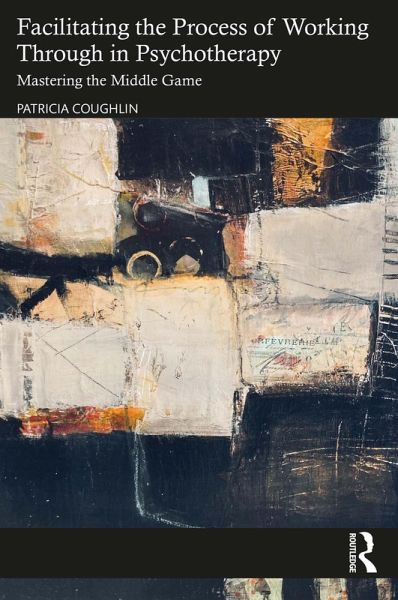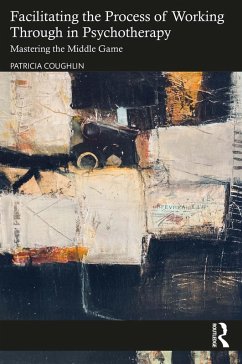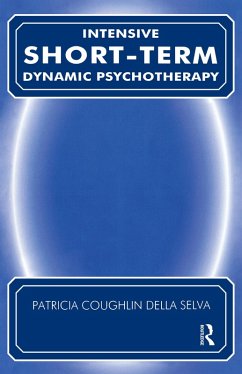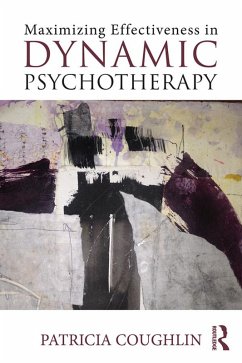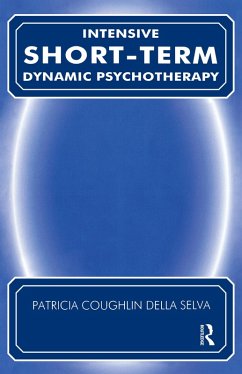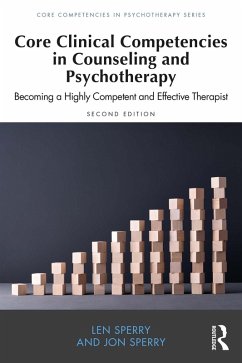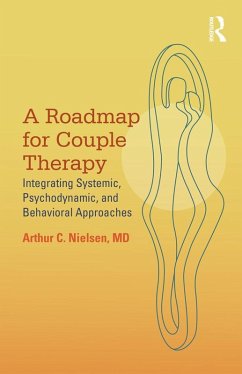"Once again Patricia Coughlin has written a crystal clear book, this time on the topic of working through. As she shows through multiple transcripts, deep change does not occur through a single magical breakthrough. Rather, it occurs due to the careful working through of multiple conflicts with different people from various times of life. Symptoms are often multiply determined. And to achieve lasting change, the therapist must systematically address and work through each of these conflicts and help patients bear the complex feelings involved. Numerous case vignettes illustrate the role of multiple causation in symptom development, how to address the need to repeat, the role of rupture and repair, and the corrective emotional experience. The
case material demonstrates once again a master at work."
Jon Frederickson,
MSW, Faculty, Washington School of Psychiatry, USA"Dr. Coughlin's ambitious goal in writing this book - to clarify the therapeutic processes that translate emotional insight into enduring change - is a welcome addition to the psychotherapy literature. Her particular model of short-term dynamic work has much to teach psychotherapists of every stripe and orientation about the techniques of interpersonal engagement that promote transformation that lasts. This is a book for senior clinicians and beginners alike, filled with practical wisdom."
Dr Robert Waldinger,
Professor at Harvard Medical School; Director, Harvard Study of Adult Development, USA"Patricia Coughlin has done it again! She has written another outstanding book that clearly demonstrates her standing as a master clinician and highly talented teacher of Intensive Short-Term Dynamic Psychotherapy. Her focus on the crucial but neglected topic of working-through patient difficulties during the process of therapy is of critical importance to clinicians, especially those practicing psychodynamic and experiential therapies. I found the varied and fascinating case vignettes from Dr. Coughlin's practice to be a great help in understanding how she achieves such a high level of success even with very resistant patients. This superb volume can't help but lift the standard of practice in our field."
Stanley B. Messer,
Ph.D, Distinguished Professor Emeritus and former Dean, Graduate School of Applied and Professional Psychology, Rutgers University, USA"The remarkable effectiveness of Patricia Coughlin's therapeutic prowess and courage is apparent throughout this volume's compelling documentation of her particular style of implementing ISTDP. She draws the reader into her moment-by-moment, deeply empathetic process that reveals and then unlocks life-shaping patterns of distress down to their inner core. She is to me a kindred spirit in the quest to make liberating, transformational change the norm in psychotherapy. This is an important contribution from one of the clinical field's true masters."
Bruce Ecker,
LMFT, co-founder of Coherence Therapy, co-director of the Coherence Psychology Institute, and co-author of 'Unlocking the Emotional Brain: Eliminating Symptoms at Their Roots Using Memory Reconsolidation' (Routledge, 2022)"In her latest volume,
Facilitating the Process of Working through in Psychotherapy: Mastering the Middle Game, Patricia Coughlin provides the reader with a roadmap to the central task of working through in psychotherapy. Few volumes address this topic in such an in-depth manner. Dr. Coughlin's strong foundation in classic literature, contemporary research, extensive clinical experience, along with her talent for simplifying the complexity of psychotherapy makes this a must read for all psychotherapists. It is clear when you immerse yourself in this important volume that you are in the hands of a master psychotherapist. She courageously takes her patients and herself to emotional experiences typically avoided but which are the foundation of deep change. Copious clinical case examples demonstrating the complexity of the endeavor, as well as the therapeutic responses that deepen emotional experience are skillful interwoven with technical suggestions and theoretical insight."
Jeffrey J. Magnavita,
Ph.D., ABPP, CEO/Founder, Strategic Psychotherapeutics®, LLC, Host of Eminent Psychotherapists Revealed®"Dr. Patricia Coughlin writes, 'Like the middle game in chess, there is no play book to guide us.' Indeed, tackling this 'middle game' is not for the faint of heart. But that is exactly what Coughlin, both a brilliant researcher/scholar and a consummate clinician with decades of experience in the field, dares to do in this her latest chef d'oeuvre - a stunningly inspired pièce de resistance that is most certainly destined to become yet another classic in the field of ISTDP (along with her 2004 and 2016 widely celebrated bestsellers). This eminently readable volume is one of the most deeply satisfying and richly rewarding books on psychotherapy that I have ever had the privilege and pleasure to read.
Seamlessly interweaving theory and practice, Coughlin's painstakingly researched, beautifully orchestrated, and lovingly crafted volume addresses both the science and the art of an in-depth, evidence-based psychodynamic process designed to 'incentivize' deep and enduring psychotherapeutic change. Especially compelling is Coughlin's finely honed ability to tease out a set of 'organizing principles' - strategic interventions that will provide the reader with a broad-based 'conceptual framework' for understanding the nuances and subtleties of the moment-to-moment interactions between patient and therapist and for successful negotiating of the turbulence that will inevitably arise between them when profound characterological transformation is the goal.
Citing research studies that document greater success in facilitating change when therapists are more 'focused' and 'directive' than when they 'promote open exploration' - and reminiscent of Freud's eventual acknowledgement that, in order to broaden its scope of applicability, the 'pure gold of analysis' might well need to be 'alloyed' with the 'copper of direct suggestion ... and hypnotic influence' (1919, p. 168) - Coughlin presents a compelling case for the critical importance of superimposing an 'acute (growth-incentivizing) crisis' on top of a 'chronic (growth-impeding) crisis' in order to jumpstart the 'healing process.'
Coughlin helps us appreciate that judicious and ongoing challenge of no-longer-needed defenses in order to break them down, unlock the unconscious, and gain access to previously avoided impulses, feelings, conflicts, memories, dreams, and associations will provide both impetus and opportunity for relinquishment of 'defensive reactions' in favor of 'adaptive responses,' for translation of insight into sustained change, for release from the tyranny of the past, for consolidation of a cohesive and empowered sense of self in the present, and for envisioning of expansive possibilities for the future. No pain, no gain.
The book's humble claim to be about 'facilitating' the process of working through does not begin to do justice by what this book is really about. In truth, the book is about 'accelerating' the process of working through - even as it remains true to fundamental psychoanalytic concepts, stays even attuned to the (conscious and unconscious) alliance between patient and therapist, and is ever respectful of the patient's level of anxiety and capacity to tolerate further challenge. This unpretentious, hope-infused gem of a book is an exquisitely sculpted work of art that ultimately manages to make tremendously complex material at once accessible, compelling, refreshing, uplifting, inspiring, and, quite frankly, riveting!
Cherish this wonderfully humane and hope-infused treasure trove of theoretical and clinical pearls of wisdom, which you will find yourself wanting to keep close at hand (and not in your library) so that you can read and reread it whenever you want help with finding your way!"
Martha Stark,
MD, Faculty, Harvard Medical School, award-winning author of nine books on Psychoanalytic Theory and Technique